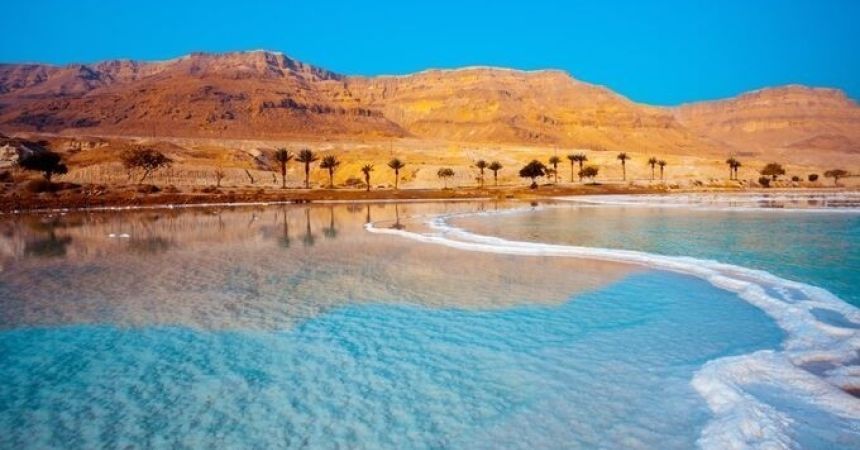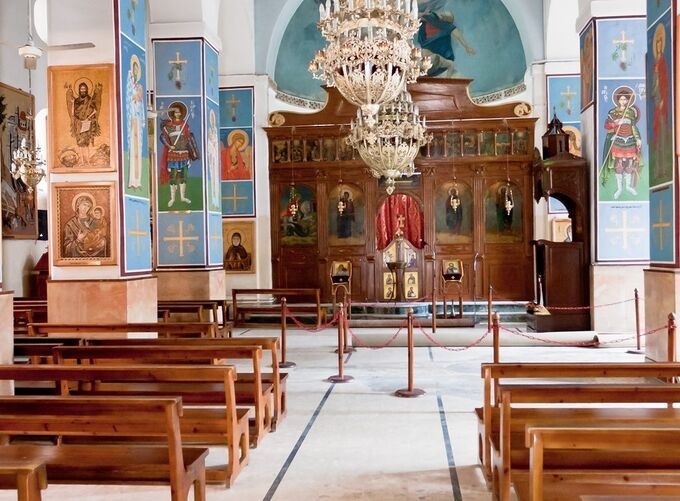
Jordan Weather in January: A Comprehensive Guide
Jordan, a country renowned for its rich history, stunning landscapes, and vibrant culture, experiences diverse weather conditions throughout the year. January is an intriguing time to visit Jordan, offering unique opportunities to explore the country’s natural beauty and historical sites. This comprehensive guide will delve into what you can expect from Jordan’s weather in January, helping you plan your visit effectively.
Overview of Jordan's Climate
Jordan’s climate varies significantly depending on the region. The country can be broadly divided into three climatic zones:
Mediterranean Climate: Characterized by mild, wet winters and hot, dry summers. This climate is prevalent in the northern and central parts of Jordan, including Amman and Jerash.
Desert Climate: Found in the southern and eastern parts of Jordan, including Wadi Rum and Aqaba, this climate is marked by extreme temperatures with hot, dry summers and cooler winters.
Semi-Arid Climate: Present in the Jordan Valley and parts of the Dead Sea region, featuring hot, dry summers and cooler winters.
In January, Jordan's weather is influenced by these climatic zones, creating a mix of cooler temperatures and occasional rain.
Weather Conditions in Major Jordanian Cities
Amman:
Temperature: In January, Amman experiences mild to cool temperatures. Daytime highs typically range from 8°C to 14°C (46°F to 57°F), while nighttime lows can drop to around 2°C to 6°C (36°F to 43°F). January is one of the colder months in Amman, with occasional frost possible in the early mornings.
Rainfall: January is one of the wetter months in Amman, with average precipitation of around 40-60 mm (1.6-2.4 inches). Rain showers are common, contributing to the overall greening of the landscape.
Clothing: Layered clothing is recommended, including a warm jacket, as temperatures can fluctuate throughout the day. A waterproof jacket or umbrella is also advisable due to the possibility of rain.
Petra:
Temperature: Petra, located at a lower elevation than Amman, enjoys slightly milder temperatures. Daytime highs range from 10°C to 16°C (50°F to 61°F), while nighttime temperatures can drop to around 2°C to 6°C (36°F to 43°F). The desert climate makes for cooler evenings and mornings.
Rainfall: Petra receives less rainfall compared to Amman, with average precipitation of about 20-30 mm (0.8-1.2 inches) in January. Rain is less frequent but can still occur.
Clothing: Layers are essential, with a warm jacket for cooler evenings. Comfortable walking shoes are recommended for exploring the archaeological sites.
Wadi Rum:
Temperature: Wadi Rum experiences significant temperature fluctuations in January. Daytime highs typically range from 12°C to 18°C (54°F to 64°F), while nighttime temperatures can plunge to around 0°C to 5°C (32°F to 41°F). The desert environment leads to colder nights.
Rainfall: Wadi Rum receives minimal rainfall, averaging about 10-15 mm (0.4-0.6 inches) in January. Rain is rare but can occur sporadically.
Clothing: Warm clothing is necessary for the cold nights, including a thermal layer and a good-quality sleeping bag if staying in a desert camp. Daytime wear should include light layers for the mild temperatures.
Aqaba:
Temperature: Aqaba, located on the Red Sea, enjoys milder winter temperatures. Daytime highs range from 15°C to 22°C (59°F to 72°F), while nighttime lows are around 8°C to 12°C (46°F to 54°F). Aqaba's coastal location results in more moderate temperatures compared to the rest of the country.
Rainfall: January is one of the wetter months in Aqaba, with average precipitation of around 10-20 mm (0.4-0.8 inches). Rainfall is generally infrequent.
Clothing: Light layers are suitable for the daytime warmth, while a light jacket or sweater is advisable for cooler evenings. Beachwear can still be enjoyed during the day.
Regional Variations
The Dead Sea:
Temperature: The Dead Sea region enjoys relatively mild temperatures in January. Daytime highs range from 15°C to 20°C (59°F to 68°F), while nighttime lows are around 7°C to 12°C (45°F to 54°F). The low elevation of the Dead Sea means temperatures are generally more moderate.
Rainfall: Rainfall is infrequent, with average precipitation of about 10-15 mm (0.4-0.6 inches) in January.
Clothing: Daytime wear includes light clothing, while a warmer layer is necessary for cooler evenings. Swimwear is still suitable for the Dead Sea’s warm waters.

Jerash:
Temperature: Jerash, located in northern Jordan, experiences cool temperatures in January. Daytime highs range from 8°C to 14°C (46°F to 57°F), with nighttime lows dropping to around 2°C to 6°C (36°F to 43°F). The region is generally cooler than Amman.
Rainfall: Rainfall is moderate, averaging around 40-60 mm (1.6-2.4 inches) in January.
Clothing: Layers are essential, including a warm jacket for cooler temperatures. An umbrella or waterproof jacket is recommended due to the likelihood of rain.
What to Expect When Traveling in January
Crowds and Tourism:
High Season: January is considered part of the high season for Jordanian tourism due to the milder weather, making it an ideal time for sightseeing and outdoor activities. Major tourist sites, such as Petra and Wadi Rum, may experience moderate crowds.
Accommodation: It’s advisable to book accommodations in advance, particularly in popular tourist areas. January’s cooler weather makes it a pleasant time for outdoor excursions, leading to increased interest in Jordan’s attractions.
Outdoor Activities in Jordan:
Exploring Petra: January’s cooler temperatures make it an excellent time for exploring Petra without the extreme heat of summer. Comfortable walking shoes and layered clothing are recommended.
Desert Adventures: In Wadi Rum, January’s cooler nights and mild daytime temperatures provide a comfortable environment for desert activities such as jeep tours, Jordan camel rides, and stargazing.
Beach Time in Aqaba: While January is not ideal for swimming, the mild weather in Aqaba allows for enjoyable beach walks and water sports, with lighter crowds compared to the summer months.
Health and Safety in Jordan:
Health Precautions: The cooler temperatures and occasional rain in January mean that you should dress in layers and stay warm, especially in the evenings. Stay hydrated and be cautious of slippery conditions in rain-affected areas.
Safety: Jordan is generally safe for travelers. However, it’s always wise to check local travel advisories and stay informed about weather conditions, particularly if planning outdoor activities.
Packing Tips for January in Jordan
Clothing: Pack layered clothing to adapt to the variable temperatures. Include a warm jacket, thermal layers for colder nights, and lighter clothes for daytime. A waterproof jacket or umbrella is useful for potential rain.
Footwear: Comfortable walking shoes are essential for exploring archaeological sites and cities. Consider hiking boots if you plan to visit desert areas or engage in outdoor activities.
Accessories: Sunglasses and sunscreen are necessary for daytime activities, while a hat and scarf can provide additional warmth. A good-quality camera will help capture Jordan’s stunning landscapes and historical sites.
Travel Essentials: Bring any medications you might need, as well as travel documents and a power adapter for your electronic devices.
Jordan Travel: Experience the Best of History
January in Jordan offers a unique blend of cool temperatures, occasional rain, and diverse experiences across the country. From exploring the ancient wonders of Petra to enjoying the coastal beauty of Aqaba and the dramatic landscapes of Wadi Rum, Jordan in January provides a pleasant and rewarding travel experience. By preparing for the varied weather conditions and packing appropriately, you can make the most of your trip to Jordan and enjoy all that this remarkable country has to offer.



